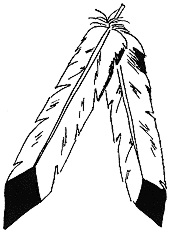Name three or more things, scenarios, or ideas that come to mind from Dr. Vance's comments in this
book. Be specific on details or ideas.
The one
that sticks out most to me is “Barter Medical Care” (page 15). It
really reflects on how times were different and how services were exchanged. During
the depression and hard times, people often exchanged services rather than money. In
this scenario, Dr. Vance delivered a baby and in return he received a nice warm meal. And a twenty-pound ham for theater tickets. On another occasion, he accepted three five-pound bags of sugar in exchange for a
visit.
I also
liked the part about “Nature’s Remedies” (page 26). I have
herd of using some natural treatments, but nothing like this. I would have never
thought of using a skunk to help cure pneumonia, or using “a large pile of steaming excreta” as an ointment for
a carbuncle; also using “sweet pee” for an earache.
For me,
there are some sayings that are more notable than others. One gentleman stated
“Doc, I’m having trouble with my git-alongs” (page 19). “Doctor,
you don’t think she could actually be in labor do you? They’ve been married only seven months” (page 36). “She’s like a wore-out old pair of shoes; it don’t do no good to
try to patch ‘em” (page 42). “I have to masturate my food real
well or it chokes me when I swaller” (page 43). “I get so hungry,
I feel my guts are crawling out through my navel” (page 53). That one reminds
me of my dad. He thinks he is about to die if he doesn’t eat right away. “I just ain’t making no speed” (page 54). “I’m weak and feel like I’m about out of gas” (page 54). “Mrs. Blank, you’re in the late first stage of labor.
Your pains are far apart and you have very little dilation of the cervix. I
believe you will dilate tonight.” She had interpreted dilate to mean “die
late” (page 79). And when the widow gave the mortician a “flaming
red shirt” for her husband to wear to his funeral, she stated, “I made that shirt for him and he never would wear
it, but by God, I mean he’s gonna wear it now!” (page 87).
I also
like how he uses the patients’ names to diagnose them. For example, Mr.
Lee K Fawcet, Mrs. Jaun Deece, Mrs. Anna Rexia, and Mrs. Notherbaby. As
he stated on page 11, “To make each person stand out as an individual, I have assigned a proper name to some of them. A few are ridiculously fictitious and others are medical terms descriptive of the
pathological condition under discussion.”
Did Dr. Vance differ from other doctors, from doctor's you have worked with, in the way he listened
to patients? Explain.
Dr.
Vance’s patients were really lucky to have a doctor that spends time with them and listens to them. I have worked with several doctors in the past and only came into contact with two that actually seemed
to care for their patients. They often would be in the room with a patient for
longer than an hour, and the patient was only scheduled for a fifteen minute visit.
The other patients that were left waiting always waited for their turn because they knew the doctor would spend that
much time with them if it was necessary. Other doctors you might see them for
five minutes, if that. You spend more time with their nurse.
Many folks, especially folks not from this area, think that Dr. Vance condescends or disrespects
the folks he discusses in this book. Tell, in detail, why you agree or disagree with this opinion.
I do not
think that Dr. Vance condescends or disrespects the people he discusses in this book.
He is just telling the truth about his experiences, they just happen to be amusing.
Everyone at some point always tries to diagnose themselves or others, no matter where you are from, and there is no
telling what things people come up with. Dr. Vance has just written them all
down to share with others. He stated on page 11, I trust that my readers will
not interpret anything I say as a reflection on the mentality of those quoted, as many of them have brilliant minds and they
are among the finest people on earth.”
If you had a chance to tell Dr. Vance's family ONE observation you gathered from the reading of
this book, what would that observation be?
I would
have to tell them that this area was very fortunate to have such a caring doctor. He is an excellent representation of what
future doctors need to strive for.
